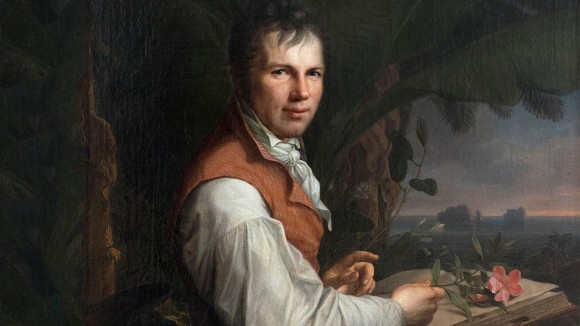
I'm finishing up Andrea Wulf's award-winning book about Alexander von Humboldt, The Invention of Nature, and returning it to the library. Who, you might ask? Humboldt is one of those remarkable world figures from the past who the majority of us just don't know about. This year marks the 250th anniversary of his birth, so a fair amount of attention has been given to his remarkable scientific explorations in South and Central America, as well as other parts of the world. He was endlessly inquisitive, quite fearless, and willing to think outside the conventions of his time.
The "invention of nature" aspect of the title refers to his developing awareness that in the natural world everything is connected to everything else, in what we now refer to as ecosystems and the web of creation. He realized in South America that deforestation and diversion of water affected climate. While science at that time was dedicated to orderly categorization he had an expansive picture of the way species interacted within systems and had an almost lyrical way of describing this which made him a celebrity on several continents.

American president Thomas Jefferson, an amateur biologist, welcomed Humboldt to Washington, and his writing likely influenced Charles Darwin.
I was intrigued that Humboldt seemed to have no religious leanings, even though that was uncommon for scientific explorers of that time. He did benefit from Christian missionary outposts in South America where he would stop for supplies and rest. Sadly, those colonial missionaries were often part of the problem of environmental degradation.
Another figure who admired Humboldt was John Muir, the eventual founder of the Sierra Club who helped to protect important areas of natural beauty in the United States. Muir was brought up in a strict fundamentalist Christian home but abandoned the dismal confines of that experience to become a nature mystic, celebrating the glory of Creation and the Creator.
Wulf's book is well worth reading, if you're inclined to this sort of biography. Of course, I'm biased toward the Judeo/Christian God as the inventor of nature and their passages of scripture which celebrate diversity and interconnection. But I won't quibble with the title!

Alexander von Humboldt
No comments:
Post a Comment